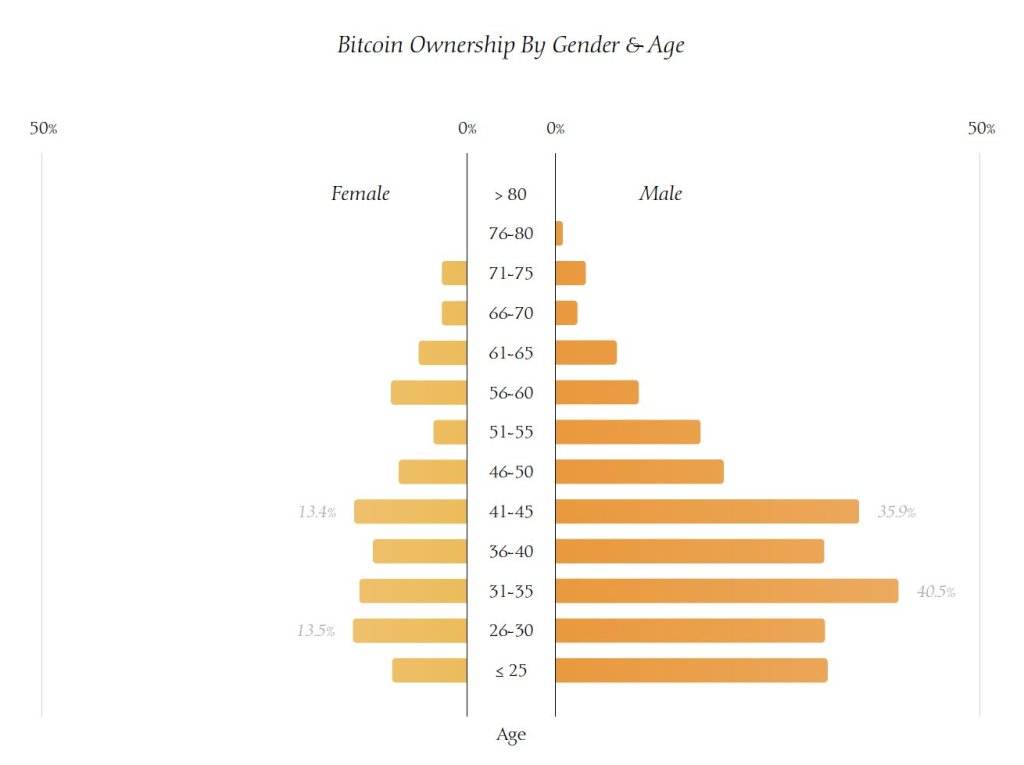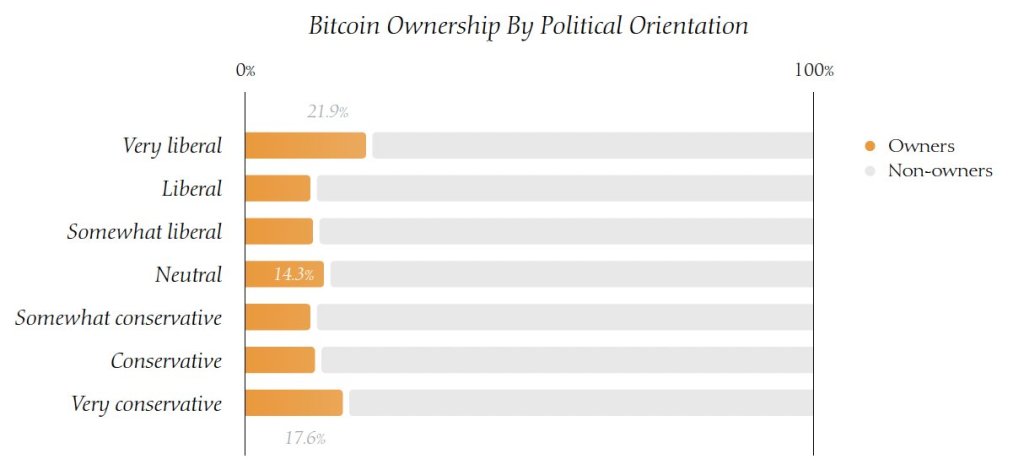Surprising Insights: Who Really Owns Bitcoin in America?
23.07.2024 17:00 1 min. read Alexander Stefanov
A recent study by the Nakamoto Institute offers a fresh perspective on who holds Bitcoin in the United States, upending several common assumptions about cryptocurrency investors.
The research, directed by Troy Cross and Andrew Perkins, surveyed over 3,500 American adults to understand the demographic and political profile of Bitcoin owners.
The findings challenge the stereotype that Bitcoin enthusiasts are predominantly right-leaning or libertarian.
Contrary to this view, the study found that Bitcoin owners represent a broad spectrum of political beliefs, including those who are very liberal.

“We discovered that Bitcoin ownership spans various political orientations, not just those on the right,” noted Cross. This broad political diversity was unexpected, as many believed Bitcoin was mostly favored by conservative or libertarian individuals.

The study also found that Bitcoin owners are generally younger and predominantly male, but political and moral values do not strongly influence ownership.
Instead, the research highlights that what matters most is an individual’s knowledge about Bitcoin and their perception of its usefulness and trustworthiness. “The key factors linked to Bitcoin ownership are understanding the cryptocurrency and having a positive view of its utility,” Cross explained.
Overall, the research indicates that Bitcoin owners are not confined to any specific political or demographic group but are defined by their informed and favorable attitude towards the cryptocurrency.
-
1
UK Regulators Unveil PISCES – A New Era for Private Share Trading
11.06.2025 15:00 2 min. read -
2
Polygon Breaks from Decentralization as Sandeep Nailwal Assumes Full Control
11.06.2025 20:00 2 min. read -
3
KuCoin Plants Its Flag in Bangkok With a Licensed Thai Exchange
14.06.2025 13:00 1 min. read -
4
Nvidia CEO Urges UK to Invest in AI Infrastructure or Risk Falling Behind
10.06.2025 9:00 1 min. read -
5
Why Gold Could Be the Smart Play Amidst US Debt Surge
11.06.2025 11:00 1 min. read
What Brian Armstrong’s New Stats Reveal About Institutional Crypto Growth
Coinbase CEO Brian Armstrong has spotlighted a significant acceleration in institutional crypto adoption, driven largely by the surging popularity of exchange-traded funds and increased use of Coinbase Prime among major corporations.
What Will Happen With the Stock Market if Trump Reshapes the Fed?
Jefferies chief market strategist David Zervos believes an upcoming power shift at the Federal Reserve could benefit U.S. equity markets.
U.S. Bank Advises Clients to Drop These Cryptocurrencies
Anchorage Digital, a federally chartered crypto custody bank, is urging its institutional clients to move away from major stablecoins like USDC, Agora USD (AUSD), and Usual USD (USD0), recommending instead a shift to the Global Dollar (USDG) — a stablecoin issued by Paxos and backed by a consortium that includes Anchorage itself.
Vitalik Buterin Warns Digital ID Projects Could End Pseudonymity
Ethereum co-founder Vitalik Buterin has voiced concerns over the rise of zero-knowledge (ZK) digital identity projects, specifically warning that systems like World — formerly Worldcoin and backed by OpenAI’s Sam Altman — could undermine pseudonymity in the digital world.
-
1
UK Regulators Unveil PISCES – A New Era for Private Share Trading
11.06.2025 15:00 2 min. read -
2
Polygon Breaks from Decentralization as Sandeep Nailwal Assumes Full Control
11.06.2025 20:00 2 min. read -
3
KuCoin Plants Its Flag in Bangkok With a Licensed Thai Exchange
14.06.2025 13:00 1 min. read -
4
Nvidia CEO Urges UK to Invest in AI Infrastructure or Risk Falling Behind
10.06.2025 9:00 1 min. read -
5
Why Gold Could Be the Smart Play Amidst US Debt Surge
11.06.2025 11:00 1 min. read


